1. Understanding the Importance of Regular Dental Check-Ups
Regular dental check-ups play a critical role in maintaining overall oral health, yet many people underestimate their value. In the United States, preventive dental care is increasingly recognized not only for maintaining a beautiful smile but also for preventing serious health complications. Routine dental visits allow dentists to monitor the condition of your teeth, gums, and mouth, catching issues before they develop into painful or costly problems.
Skipping dental appointments might seem harmless, but research shows that people who avoid routine care often face more severe issues such as cavities, gum disease, and even tooth loss. This makes regular check-ups a fundamental pillar of oral hygiene that contributes to long-term wellness.
How dental visits work beyond cleaning
During a typical dental check-up, a thorough examination includes cleaning, X-rays if necessary, and screening for oral diseases. Dentists also check for early signs of conditions like oral cancer and evaluate bite alignment. This proactive approach ensures problems are addressed promptly, often before symptoms appear.
2. The Preventive Effects of Routine Dental Visits on Oral Health
One of the greatest benefits of regular dental check-ups is prevention. Dentists remove plaque and tartar buildup that everyday brushing and flossing cannot fully eliminate. This reduces the risk of tooth decay and periodontal diseases, which are leading causes of tooth loss among adults.
Prevention of gum disease
Gum disease, or periodontal disease, begins as gingivitis—an inflammation of the gums—and if untreated, can progress to serious infection affecting the bone supporting teeth. Early detection through regular check-ups enables timely intervention, avoiding pain, swelling, and expensive treatments later.
Early detection of cavities and decay
Cavities often develop silently without pain initially. Dentists use tools and X-rays to spot decay early, allowing for conservative treatments like fillings rather than more invasive procedures like root canals or extractions.
3. The Broader Health Benefits Linked to Oral Care
Recent studies reveal a strong connection between oral health and overall physical health. Poor oral hygiene and untreated gum disease have been linked to serious systemic conditions such as heart disease, diabetes, and respiratory infections. Regular dental check-ups help reduce inflammation and bacterial infections that may spread beyond the mouth.
Oral health and heart disease
Researchers have found that bacteria from gum disease can enter the bloodstream and contribute to the formation of arterial plaque, increasing the risk of heart attacks and strokes. Maintaining good oral health through regular dental visits supports cardiovascular health.
Diabetes management and dental care
For diabetic patients, maintaining oral health is especially important. Gum infections can make it harder to control blood sugar levels. Regular dental care helps manage this cycle and prevent complications.
4. Real-Life Stories Highlighting the Value of Dental Check-Ups
Consider the story of Emily, a 45-year-old teacher from Ohio, who postponed dental visits for years due to fear and cost concerns. When she finally visited a dentist, early-stage gum disease was diagnosed, but treatment saved her teeth and prevented more invasive procedures. Her experience reflects a common reality in the US—early detection through regular visits can be life-changing.
Another inspiring case is Mark, a young athlete who maintained strict dental care habits. His routine check-ups not only kept his smile bright but also helped identify a minor dental fracture early, preventing severe pain and time off training. Stories like these emphasize that consistent dental visits protect not just oral health but daily quality of life.
5. How Often Should You Schedule Dental Check-Ups?
The American Dental Association generally recommends dental check-ups twice a year for most individuals. However, some people with higher risk factors—such as smokers, pregnant women, diabetics, or those with a history of gum disease—may benefit from more frequent visits. Your dentist can tailor the schedule based on your specific needs.
Personalized dental care plans
During check-ups, dentists assess your oral condition and recommend a personalized plan, balancing preventive measures with any necessary treatments. This customized approach ensures that every patient receives optimal care to maintain long-term oral health.
6. How to Maximize the Benefits of Your Dental Visits
To get the most from regular dental check-ups, maintain good oral hygiene habits at home—brushing twice daily, flossing, and avoiding excessive sugar. Share any dental concerns or symptoms with your dentist openly. Ask questions about your oral health and preventive strategies. Building a trusting relationship with your dental care provider enhances your motivation and compliance.
Additionally, lifestyle choices such as quitting smoking and managing diet contribute significantly to oral health outcomes. Regular visits complement these habits, creating a holistic approach to dental wellness.
7. Accessing Quality Dental Care in the United States
Access to consistent dental care remains a challenge for many Americans due to cost or availability. However, dental insurance plans and community health programs increasingly support preventive care. Finding a trusted dental provider who prioritizes patient education and comfort can transform your experience.
For tailored recommendations on dental services and providers suited to your needs, visit Dentistry Toothtruth. Their expert guidance helps connect you with quality care that fits your lifestyle and budget, ensuring regular dental check-ups become an accessible part of your health routine.

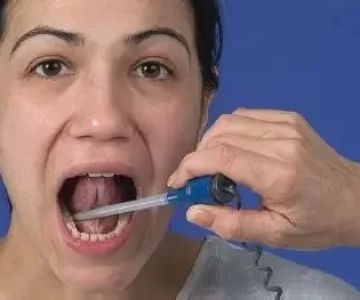
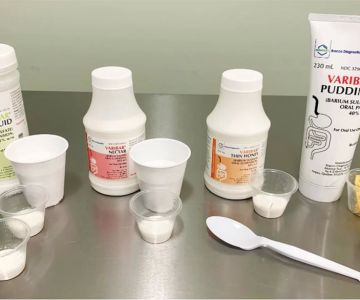


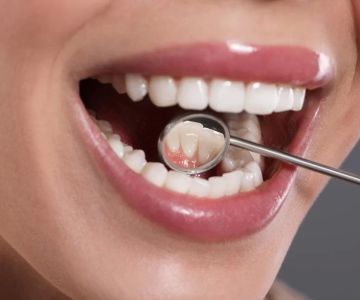
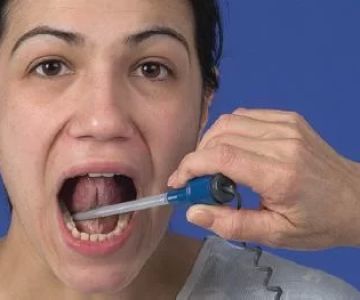
 Growing Smiles of Voorhees4.0 (2464 review)
Growing Smiles of Voorhees4.0 (2464 review) Affordable Dentures & Implants4.0 (855 review)
Affordable Dentures & Implants4.0 (855 review) Coventry Family Dental4.0 (247 review)
Coventry Family Dental4.0 (247 review) Hiser Orthodontics5.0 (283 review)
Hiser Orthodontics5.0 (283 review) Sapphire Family Dental (Dr. Amy Chi, Dr. Emily Allen & Dr. Steven Rzepecki)4.0 (208 review)
Sapphire Family Dental (Dr. Amy Chi, Dr. Emily Allen & Dr. Steven Rzepecki)4.0 (208 review)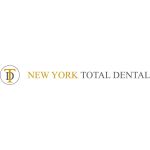 New York Total Dental5.0 (85 review)
New York Total Dental5.0 (85 review) The Importance of Oral Health Education During Pregnancy for a Healthy Pregnancy
The Importance of Oral Health Education During Pregnancy for a Healthy Pregnancy Best Tips for Brushing Your Teeth Properly for Healthy Gums: Essential Techniques for Oral Health
Best Tips for Brushing Your Teeth Properly for Healthy Gums: Essential Techniques for Oral Health Why Skipping Dental Checkups Can Lead to Bigger Oral Health Problems
Why Skipping Dental Checkups Can Lead to Bigger Oral Health Problems Advantages of Porcelain Dental Restorations
Advantages of Porcelain Dental Restorations How Can Diabetes Cause Tooth and Gum Problems? Preventing and Managing Oral Health Issues
How Can Diabetes Cause Tooth and Gum Problems? Preventing and Managing Oral Health Issues Healthy Habits for Promoting Good Oral Health and Hygiene: Tips for a Healthy Smile
Healthy Habits for Promoting Good Oral Health and Hygiene: Tips for a Healthy Smile